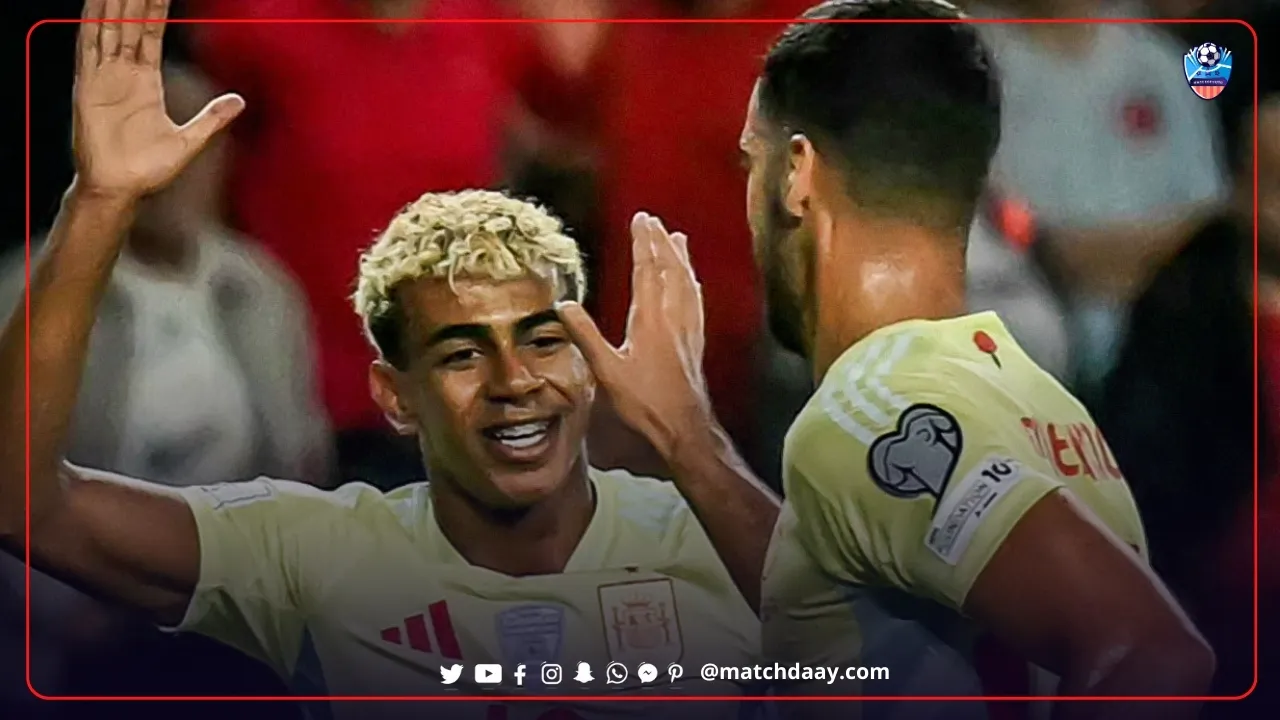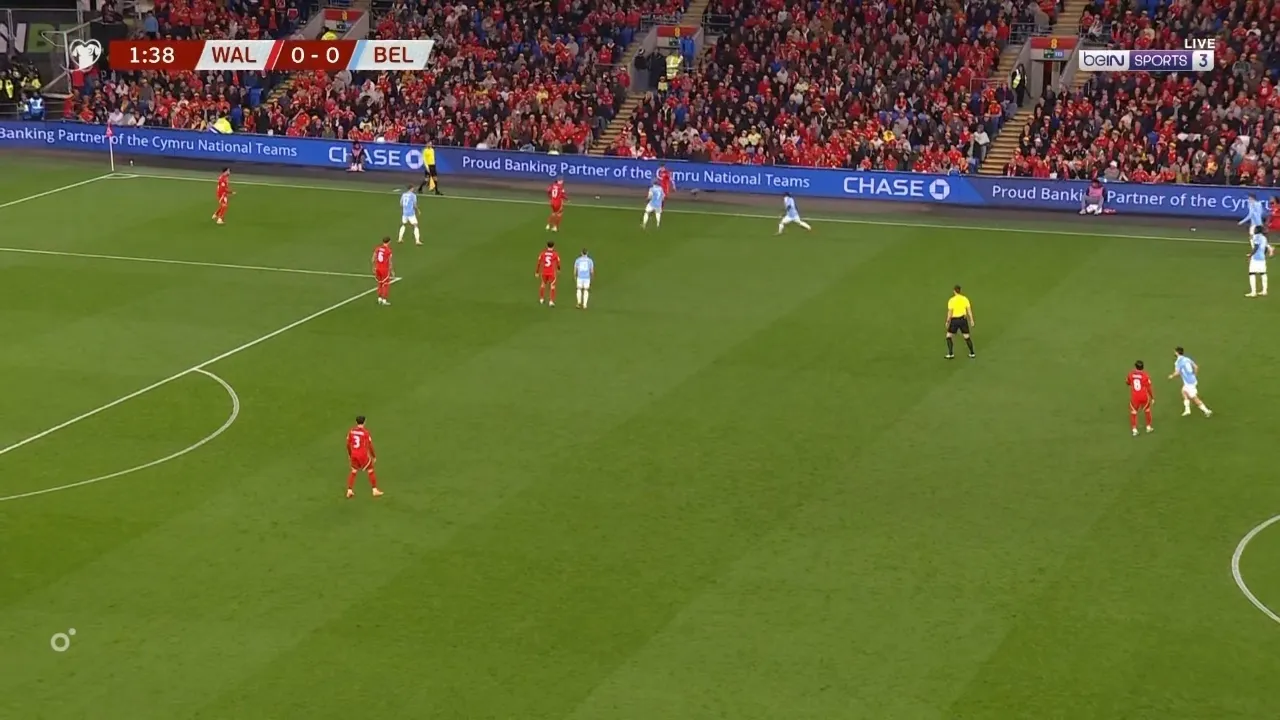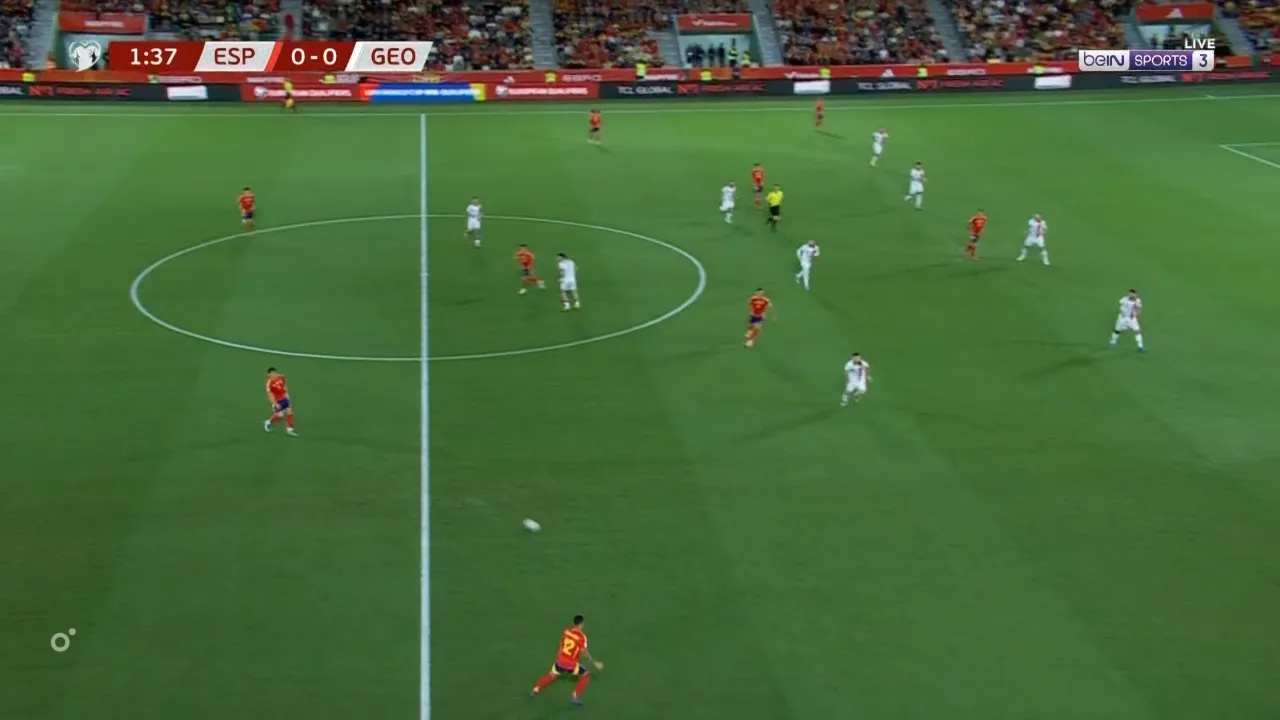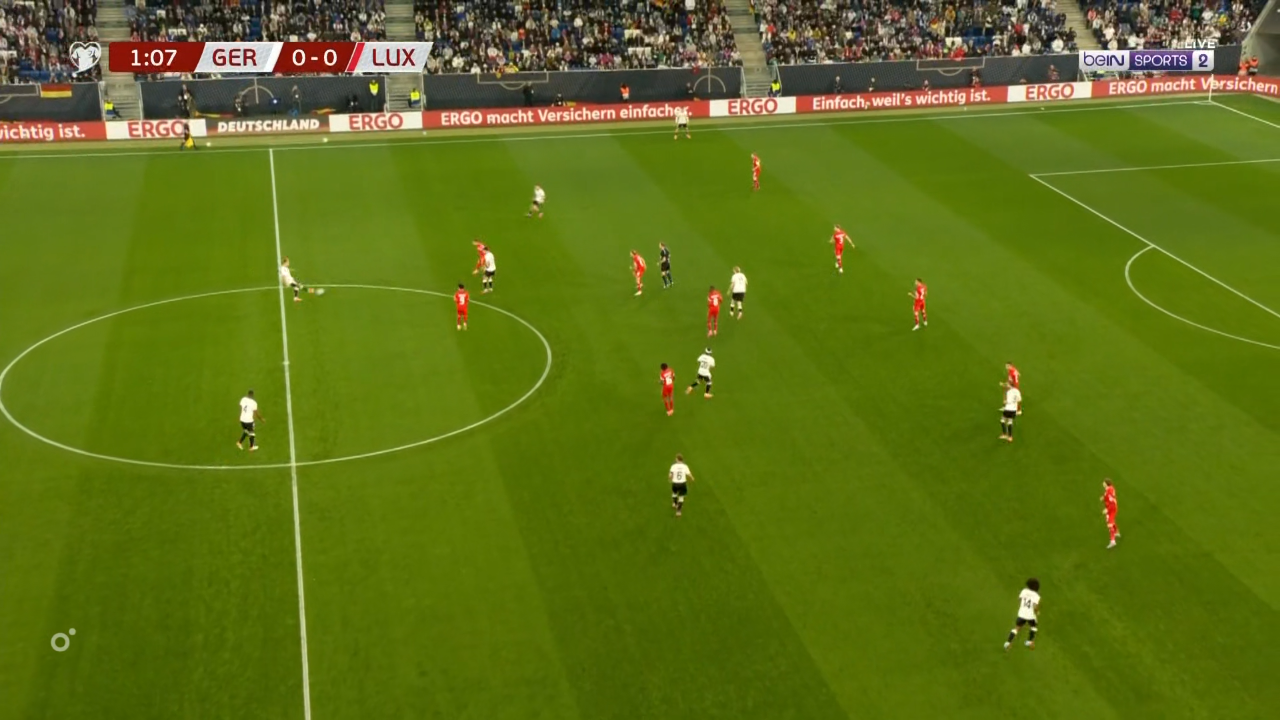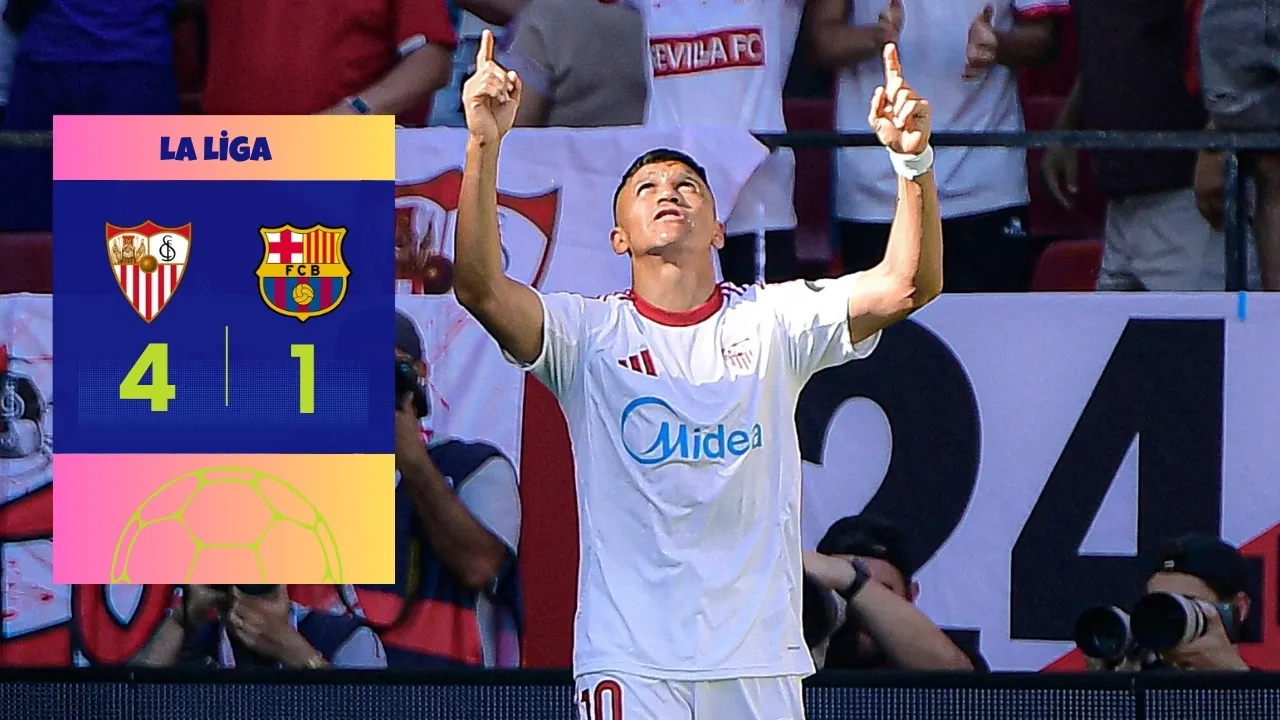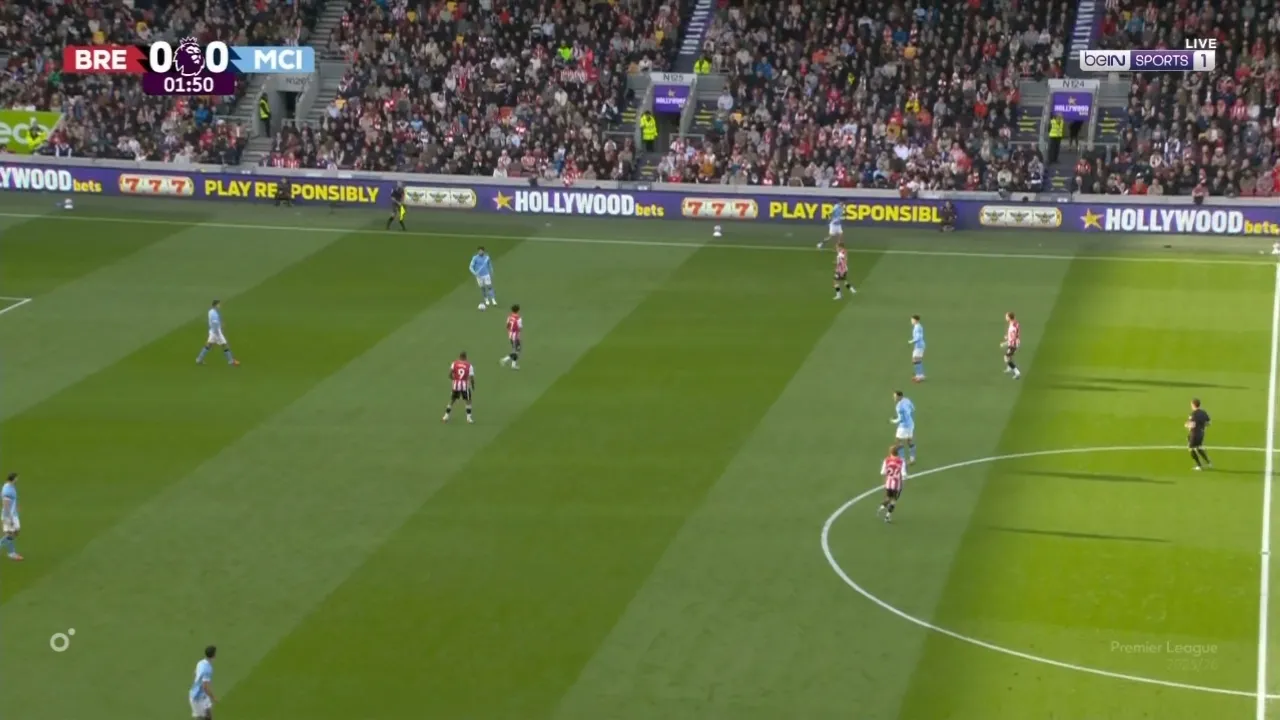In what can only be described as a footballing lesson, Spain dominates Turkey with a breathtaking 6-0 victory in a pivotal World Cup 2026 qualifier at the Konya Büyükşehir Stadium. While many expected a competitive clash, Luis de la Fuente’s side delivered a statement performance that echoed across Europe. This wasn’t just a win; it was a declaration of intent, a showcase of tactical superiority and technical brilliance that left Turkey chasing shadows and their World Cup dreams in serious jeopardy.
 World Cup - Qualification Europe
World Cup - Qualification Europe Türkiye
Türkiye Spain
Spain- Info
- Lineups
- Stats
- Events
- Standings
| Date | September 7, 2025 |
|---|---|
| Time | 19:45 |
| League | World Cup - Qualification Europe |
| Status | FT |

Türkiye
Lineups (4-3-3)
- 23 Unai Simón
- 12 Pedro Porro
- 3 Robin Le Normand
- 5 Dean Huijsen
- 22 Marc Cucurella
- 6 Mikel Merino
- 18 Martín Zubimendi
- 20 Pedri
- 19 Lamine Yamal
- 21 Mikel Oyarzabal
- 17 Nico Williams coach: Luis de la Fuente Castillo
Subs
- 11 Ferran Torres
- 1 David Raya
- 13 Álex Remiro
- 2 Daniel Carvajal
- 4 Pau Cubarsí
- 8 Fermín López
- 9 Aleix García
- 10 Dani Olmo
- 14 Jorge de Frutos
- 15 Alejandro Grimaldo
- 16 Rodri
- 7 Álvaro Morata

Spain
Lineups (4-2-3-1)
- 23 Uğurcan Çakır
- 18 Mert Müldür
- 3 Merih Demiral
- 14 Abdülkerim Bardakçı
- 13 Eren Elmalı
- 16 İsmail Yüksek
- 10 Hakan Çalhanoğlu
- 21 Yunus Akgün
- 8 Arda Güler
- 11 Kenan Yıldız
- 7 Kerem Aktürkoğlu Coach: Vincenzo Montella
Subs
- 19 Oğuz Aydın
- 2 Zeki Çelik
- 20 Ferdi Kadıoğlu
- 1 Mert Günok
- 12 Altay Bayındır
- 4 Çağlar Söyüncü
- 15 Samet Akaydın
- 5 Salih Özcan
- 6 Orkun Kökçü
- 17 İrfan Can Kahveci
- 22 Can Uzun
- 9 Deniz Gül
| Stats | Spain | |
|---|---|---|
| 2 | Shots on Goal | 12 |
| 1 | Shots off Goal | 4 |
| 11 | Total Shots | 21 |
| 8 | Blocked Shots | 5 |
| 2 | Shots insidebox | 19 |
| 9 | Shots outsidebox | 2 |
| 6 | Fouls | 9 |
| 8 | Corner Kicks | 4 |
| 5 | Offsides | 3 |
| 50% | Ball Possession | 50% |
| 0 | Yellow Cards | 0 |
| 0 | Red Cards | 0 |
| 6 | Goalkeeper Saves | 2 |
| 501 | Total passes | 513 |
| 437 | Passes accurate | 458 |
| 87% | Passes % | 89% |
| 0 | expected_goals | 0 |
| 0 | goals_prevented | 0 |
Group J
| # | Team | P | W | D | L | Pts |
|---|---|---|---|---|---|---|
| 1 |
 Belgium
Belgium | 6 | 4 | 2 | 0 | 14 |
| 2 |
 FYR Macedonia
FYR Macedonia | 7 | 3 | 4 | 0 | 13 |
| 3 |
 Wales
Wales | 6 | 3 | 1 | 2 | 10 |
| 4 |
 Kazakhstan
Kazakhstan | 7 | 2 | 1 | 4 | 7 |
| 5 |
 Liechtenstein
Liechtenstein | 6 | 0 | 0 | 6 | 0 |
Group D
| # | Team | P | W | D | L | Pts |
|---|---|---|---|---|---|---|
| 1 |
 France
France | 4 | 3 | 1 | 0 | 10 |
| 2 |
 Ukraine
Ukraine | 4 | 2 | 1 | 1 | 7 |
| 3 |
 Iceland
Iceland | 4 | 1 | 1 | 2 | 4 |
| 4 |
 Azerbaijan
Azerbaijan | 4 | 0 | 1 | 3 | 1 |
Group L
| # | Team | P | W | D | L | Pts |
|---|---|---|---|---|---|---|
| 1 |
 Croatia
Croatia | 6 | 5 | 1 | 0 | 16 |
| 2 |
 Czech Republic
Czech Republic | 7 | 4 | 1 | 2 | 13 |
| 3 |
 Faroe Islands
Faroe Islands | 7 | 4 | 0 | 3 | 12 |
| 4 |
 Montenegro
Montenegro | 6 | 2 | 0 | 4 | 6 |
| 5 |
 Gibraltar
Gibraltar | 6 | 0 | 0 | 6 | 0 |
Group B
| # | Team | P | W | D | L | Pts |
|---|---|---|---|---|---|---|
| 1 |
 Switzerland
Switzerland | 4 | 3 | 1 | 0 | 10 |
| 2 |
 Kosovo
Kosovo | 4 | 2 | 1 | 1 | 7 |
| 3 |
 Slovenia
Slovenia | 4 | 0 | 3 | 1 | 3 |
| 4 |
 Sweden
Sweden | 4 | 0 | 1 | 3 | 1 |
Group E
| # | Team | P | W | D | L | Pts |
|---|---|---|---|---|---|---|
| 1 |
 Spain
Spain | 3 | 3 | 0 | 0 | 9 |
| 2 |
 Türkiye
Türkiye | 3 | 2 | 0 | 1 | 6 |
| 3 |
 Georgia
Georgia | 3 | 1 | 0 | 2 | 3 |
| 4 |
 Bulgaria
Bulgaria | 3 | 0 | 0 | 3 | 0 |
Group K
| # | Team | P | W | D | L | Pts |
|---|---|---|---|---|---|---|
| 1 |
 England
England | 5 | 5 | 0 | 0 | 15 |
| 2 |
 Albania
Albania | 6 | 3 | 2 | 1 | 11 |
| 3 |
 Serbia
Serbia | 5 | 2 | 1 | 2 | 7 |
| 4 |
 Latvia
Latvia | 6 | 1 | 2 | 3 | 5 |
| 5 |
 Andorra
Andorra | 6 | 0 | 1 | 5 | 1 |
Group C
| # | Team | P | W | D | L | Pts |
|---|---|---|---|---|---|---|
| 1 |
 Denmark
Denmark | 4 | 3 | 1 | 0 | 10 |
| 2 |
 Scotland
Scotland | 4 | 3 | 1 | 0 | 10 |
| 3 |
 Greece
Greece | 4 | 1 | 0 | 3 | 3 |
| 4 |
 Belarus
Belarus | 4 | 0 | 0 | 4 | 0 |
Group G
| # | Team | P | W | D | L | Pts |
|---|---|---|---|---|---|---|
| 1 |
 Netherlands
Netherlands | 6 | 5 | 1 | 0 | 16 |
| 2 |
 Poland
Poland | 6 | 4 | 1 | 1 | 13 |
| 3 |
 Finland
Finland | 7 | 3 | 1 | 3 | 10 |
| 4 |
 Lithuania
Lithuania | 7 | 0 | 3 | 4 | 3 |
| 5 |
 Malta
Malta | 6 | 0 | 2 | 4 | 2 |
Group A
| # | Team | P | W | D | L | Pts |
|---|---|---|---|---|---|---|
| 1 |
 Germany
Germany | 4 | 3 | 0 | 1 | 9 |
| 2 |
 Slovakia
Slovakia | 4 | 3 | 0 | 1 | 9 |
| 3 |
 Northern Ireland
Northern Ireland | 4 | 2 | 0 | 2 | 6 |
| 4 |
 Luxembourg
Luxembourg | 4 | 0 | 0 | 4 | 0 |
Group F
| # | Team | P | W | D | L | Pts |
|---|---|---|---|---|---|---|
| 1 |
 Portugal
Portugal | 3 | 3 | 0 | 0 | 9 |
| 2 |
 Hungary
Hungary | 3 | 1 | 1 | 1 | 4 |
| 3 |
 Armenia
Armenia | 3 | 1 | 0 | 2 | 3 |
| 4 |
 Rep. Of Ireland
Rep. Of Ireland | 3 | 0 | 1 | 2 | 1 |
Group I
| # | Team | P | W | D | L | Pts |
|---|---|---|---|---|---|---|
| 1 |
 Norway
Norway | 6 | 6 | 0 | 0 | 18 |
| 2 |
 Italy
Italy | 5 | 4 | 0 | 1 | 12 |
| 3 |
 Israel
Israel | 6 | 3 | 0 | 3 | 9 |
| 4 |
 Estonia
Estonia | 6 | 1 | 0 | 5 | 3 |
| 5 |
 Moldova
Moldova | 5 | 0 | 0 | 5 | 0 |
Group H
| # | Team | P | W | D | L | Pts |
|---|---|---|---|---|---|---|
| 1 |
 Austria
Austria | 6 | 5 | 0 | 1 | 15 |
| 2 |
 Bosnia & Herzegovina
Bosnia & Herzegovina | 6 | 4 | 1 | 1 | 13 |
| 3 |
 Romania
Romania | 6 | 3 | 1 | 2 | 10 |
| 4 |
 Cyprus
Cyprus | 7 | 2 | 2 | 3 | 8 |
| 5 |
 San Marino
San Marino | 7 | 0 | 0 | 7 | 0 |
The Premise: A Fortress Breached
The context surrounding this fixture is what elevates the result from a simple thrashing to a landmark event. Turkey, under the guidance of Vincenzo Montella, entered the match with justifiable confidence. They had secured a hard-fought victory in their opening qualifier against Georgia and were backed by a notoriously passionate home support, an element they hoped would help contain one of Europe’s strongest teams. The expectation was for a contest filled with skill, pace, and drama, a genuine battle for crucial qualification points. Spain, meanwhile, arrived in Konya as the continental champions, having also started their campaign with a comfortable 3-0 victory over Bulgaria. Under manager Luis de la Fuente,
La Roja were a team blending their historic possession-based identity with a new, more direct and ruthless attacking edge, a combination that would prove fatal for their hosts.
⏰ RESULTS⏰#WCQ2026 #WorldCupQualifiers #EuropeanQualifiers #WorldCup2026 #Football #Soccer #Matchday pic.twitter.com/rULgz5Opvv
— Match Spoots (@matchspoots) September 7, 2025
The Opening Gambit: How Pedri’s Early Goal Dictated the Narrative
Any strategy Montella had devised to frustrate Spain and leverage the home atmosphere was rendered obsolete just six minutes into the match. A slick move down the left flank saw Nico Williams feed the ball to Pedri on the edge of the area. With a sublime piece of skill, the Barcelona midfielder executed a “great dribble” that left a Turkish defender on the ground before he dispatched a precise right-footed shot into the net. The goal, scored in the 6th minute, was more than a numerical advantage; it was a fundamental disruption of Turkey’s entire strategic premise.
A team planning to build from a foundation of defensive solidity was immediately forced to chase the game. This tactical shift, from a disciplined, compact shape to a more open and reactive posture, played directly into Spain’s hands. The Spanish system, built on exploiting the very spaces that emerge when an opponent is forced to press disjointedly, was given the perfect canvas on which to paint its masterpiece. The early goal was the catalyst for the entire collapse, turning Turkey’s planned fortress into an open field for Spain’s technically superior players to dominate. Turkey did create a fleeting chance to equalize, with Kerem Aktürkoğlu hitting the crossbar after being played in behind Spain’s high line by Arda Güler, but the play was correctly ruled out for offside—a warning of Spain’s defensive risks, but one they were more than equipped to manage.
How Spain Dominates Turkey with Tactical Superiority
With Turkey’s game plan in tatters, the stage was set for Mikel Merino. The midfielder, often lauded for his work rate and tactical intelligence, produced a career-defining performance, crowned by a perfect hat-trick that showcased his diverse skill set.
His first goal arrived in the 22nd minute, a clinical finish that doubled Spain’s advantage and deepened Turkey’s despair. Ten minutes later, in the 32nd minute, Merino struck again. This goal, which made the score 3-0, was a product of Spain’s sustained pressure and Turkey’s growing disorganization, effectively ending the match as a contest before the halftime whistle.
The coronation was completed in the 57th minute with a goal of sheer individual brilliance. Receiving the ball from Lamine Yamal some 30 yards from goal, Merino strode forward into the space inexplicably afforded to him by the Turkish defense and unleashed a spectacular curling effort into the top-left corner. It was a strike worthy of completing any hat-trick and served as a damning indictment of Turkey’s failure to apply any meaningful pressure on the ball carrier. Merino’s treble was a microcosm of Spain’s performance: intelligent, clinical, and capable of both intricate team play and moments of breathtaking individual quality.
Sustaining Supremacy: Spain’s Unrelenting Second Half
Leading 3-0 at the break, many teams would have been content to manage the game and conserve energy. However, Luis de la Fuente’s Spain demonstrated a ruthless streak that signals a champion’s mentality. The second half began just as the first had ended: with complete Spanish domination.
In the 53rd minute, a swift Spanish counter-attack, a recurring weapon throughout the night, culminated in Ferran Torres scoring the fourth goal. The move was initiated by Pedri, who passed to Lamine Yamal, who in turn set up Torres to finish at the near post. Just after Merino completed his hat-trick, Spain scored their sixth in the 61st minute. Mikel Oyarzabal, who recorded a remarkable three assists on the night, found Pedri, who calmly slotted home his second goal of the match.
This relentless assault was a deliberate statement. It maximized goal difference, a potentially crucial tie-breaker, and psychologically battered a direct group rival. De la Fuente used the second half to demonstrate that this Spanish team possesses a killer instinct to complement its technical elegance, establishing them not just as group leaders, but as a team to be feared on the world stage. With the game comprehensively won, the Spanish manager was able to make a raft of substitutions, allowing players like Lamine Yamal and Martín Zubimendi to be rested while seeing out a quiet final half-hour of complete control.
Table 1: Comprehensive Match Statistics Summary
| Metric | Turkey | Spain |
| Final Score | 0 | 6 |
| Date | September 7, 2025 | September 7, 2025 |
| Venue | Konya Büyükşehir Stadium | Konya Büyükşehir Stadium |
| Competition | FIFA World Cup 2026 Qualifiers | FIFA World Cup 2026 Qualifiers |
| Goalscorers | – | Pedri (6′, 61′), M. Merino (22′, 32′, 57′), F. Torres (53′) |
| Assists | – | N. Williams (1), M. Oyarzabal (3), L. Yamal (1), Pedri (1) |
| Possession % (Approx.) | 35% | 65% |
| Shots (On Target) | 7 (3) | 20 (14) |
| Disciplinary | 2 Yellow Cards | 1 Yellow Card |
The De la Fuente Doctrine: A Tactical Deep Dive into Spain’s Dominance
The 6-0 scoreline was not an accident or a fluke; it was the direct result of a superior tactical system executed to perfection. Under Luis de la Fuente, Spain has evolved, building upon its traditional philosophy to create a more dynamic and dangerous footballing machine. This match was the ultimate expression of the “De la Fuente Doctrine,” a masterclass in possession, pressing, and positional play.
Possession with a Purpose: Evolving Beyond Tiki-Taka
For over a decade, Spanish football has been synonymous with “tiki-taka,” an associative style focused on dominating the ball. De la Fuente’s iteration retains this core principle—Spain still seeks to control the game’s tempo through possession—but has imbued it with a new sense of purpose and incisiveness. The team’s initial GK-4-3-3 formation provides the structure, with Rodri operating as a masterful single pivot, capable of maneuvering out of intense pressure and initiating attacks.
Against Turkey, Spain’s possession was not sterile. It was a strategic tool used to manipulate the Turkish defensive block, pulling players out of position and creating gaps to exploit. The patient build-up was punctuated by progressive, vertical passes that broke lines and created immediate danger. This symbiotic relationship between possession and pressing is central to their dominance. By controlling the ball high up the pitch, Spain is already in an ideal position to counter-press the moment they lose it. Their defensive strategy
is their offensive strategy. They do not defend to reset; they defend to attack again, immediately. This suffocating cycle of possession-press-possession is what completely overwhelmed Turkey, who “could do little to stop them” because they were never allowed a moment to establish any rhythm.
The Asymmetric Threat: Unleashing Yamal and Williams on the Flanks
A key feature of De la Fuente’s evolved system is the variability and dynamism of the attack, particularly from the wings. Against Turkey, the deployment of Lamine Yamal on the right and Nico Williams on the left created an asymmetric and unpredictable threat that the Turkish defense could not handle. Both players possess elite 1v1 ability, but their different profiles posed a complex tactical problem.
Nico Williams offers electric pace and directness. His tendency to attack the byline and deliver crosses was evident in his assist for Pedri’s opening goal. On the opposite flank, 18-year-old superstar Lamine Yamal functions as a multi-faceted creator and scorer. He can hug the touchline to maintain maximum width, which in turn creates space in the central channels for midfielders like Pedri to operate, or he can cut inside to weave through defenses and link up with the forwards. This was demonstrated in his assists for goals by Ferran Torres and Mikel Merino. By constantly stretching the pitch horizontally with these two dynamic wingers, Spain created vast pockets of space centrally, which were ruthlessly exploited by the intelligent runs of Merino and Pedri.
The Mechanics of the Spanish Press: Suffocating Turkey at the Source
Spain’s dominance was just as pronounced without the ball. The team employs a highly organized and aggressive out-of-possession strategy, pressing high from the front in a flexible man-to-man structure. The press is typically initiated by the center-forward—in this case, captain Álvaro Morata—who dictates the direction and forces the opposition towards the sideline, where Spain can squeeze the play and block passing lanes.
The objective is to force turnovers high up the pitch or compel the opponent into hopeful long balls. Against Turkey, this system worked flawlessly. The Turkish players were given no time on the ball, their build-up play was stifled at the source, and they were repeatedly forced into errors. In midfield, Rodri steps up to man-mark the opposition’s most advanced midfielder, making it nearly impossible to play through the center. This coordinated pressure meant that Turkey’s attempts to build any sustained attacks were futile, leaving their talented attackers like Arda Güler and Kenan Yıldız isolated and starved of service.
| Metric | Spain | Turkey |
| Manager | Luis de la Fuente | Vincenzo Montella |
| Formation | 4-3-3 | 4-2-3-1 (Nominal) |
| Defensive Line Height | High & Coordinated | High & Disjointed |
| Pressing Strategy | Aggressive, Coordinated Counter-Press | Reactive & Easily Bypassed |
| Key Attacking Principle | Flank Overloads & 1v1 Isolation | Long Balls & Attempted Transitions |
| Central Midfield Role | Control, Progression & Late Runs (Rodri, Pedri, Merino) | Overrun & Disconnected (Çalhanoğlu, Özcan) |
An Autopsy of a Defeat: Deconstructing Turkey’s Tactical Collapse
While Spain’s performance was exemplary, the historic nature of the 6-0 defeat necessitates a critical examination of Turkey’s tactical approach. The collapse was not merely a case of being outplayed by a better team; it was a consequence of a flawed strategy that was fatally exposed by a world-class opponent. This was a systemic failure, from the manager’s game plan to its execution on the pitch.
The Perils of a High Line: A Defensive Strategy Fatally Exposed
The central and most catastrophic error in Turkey’s game plan was the decision to employ a high defensive line. Manager Vincenzo Montella, whose philosophy often favors proactive football, seemingly attempted to fight fire with fire. Against a Spanish side that excels at exploiting space in behind with the pace of its wingers and the sublime passing of its midfielders, this was tactical suicide. Spain’s entire attacking system is designed to punish exactly this kind of defensive setup.
Throughout the match, Turkey left vast spaces behind their back four, which Spain exploited time and again for their goals, particularly on the counter-attack. The decision to play a high line without the coordinated, suffocating pressure required to make it work left the Turkish defenders hopelessly exposed. This was not a failure of adaptation; it was an adherence to a philosophy that was entirely unsuited to the opponent. Historically, Spain has struggled most against teams that defend in a deep, compact low block, suffocating the space they need to operate. By doing the opposite, Turkey played directly to Spain’s greatest strengths. This raises a critical question about Montella’s tactical flexibility. The defeat could force a painful but necessary re-evaluation, shifting from ideological purity to the strategic pragmatism required to compete with elite nations.
The Midfield Void: Losing the Battle for Control and Supply
The battle for midfield control was decisively lost by Turkey, rendering their talented attacking players ineffective. Despite boasting a midfield containing the experience and quality of captain Hakan Çalhanoğlu and Salih Özcan, they were completely overrun. Spain’s midfield trio of Rodri, Pedri, and Merino created a numerical and qualitative superiority that Turkey’s double pivot in their 4-2-3-1 formation could not handle.
Spain’s constant movement, creation of passing triangles, and intense pressure prevented Turkey from establishing any foothold in the game. Çalhanoğlu, who often operates as a deep-lying playmaker, was unable to get on the ball and dictate play as he was hounded by the Spanish press. The disconnect between the Turkish midfield and its attack was stark. With no stable possession or supply line, forwards like Arda Güler and Kenan Yıldız were left to chase shadows and feed on scraps, their efforts ultimately wasted.
Systemic Failure vs. Individual Error: Pinpointing the Breakdown
The 6-0 demolition was the result of a cascade failure, where a flawed system put players in positions to fail, inevitably leading to a litany of individual errors. The “nonexistent” defense lamented by observers was a symptom of the larger tactical disease. The high line exposed the defenders to 1v1 situations they were ill-equipped to handle. The lack of midfield pressure allowed Spanish players like Merino the time and space to pick their spot from distance for his third goal.
While individual defenders could be faulted for poor positioning or missed tackles, these errors occurred within a framework that offered them little to no protection. It was a collective breakdown, stemming from a game plan that was both naive and poorly executed. The responsibility must be shared between a flawed strategy from the coaching staff and an on-field performance from the players that lacked the discipline and cohesion to mitigate its worst effects.
Individual Performance Audits and Key Match-Up Analysis
In a match of such tactical disparity, the individual performances of the players told a story of heroes and victims. Spain’s squad was filled with architects of a memorable victory, while Turkey’s players endured a night of collective futility, punctuated by brief, isolated moments of quality.
Spain’s Architects of Victory: Player Ratings and In-Depth Analysis
- Mikel Merino (10/10): The undisputed Man of the Match. A flawless box-to-box performance capped by a clinical and spectacular hat-trick. His intelligent runs into the box, combined with his sublime long-range strike, showcased a midfielder at the peak of his powers. He was the engine and the end product of Spain’s dominance.
- Pedri (9/10): The creative heartbeat of the team. He set the tone with his brilliant opening goal and added a second with a calm finish. His ability to find and operate in pockets of space, dictating the tempo of the game, was instrumental. He was the conductor of the Spanish orchestra.
- Mikel Oyarzabal (9/10): While not on the scoresheet, his contribution was immense. He provided three assists, a testament to his superb vision, weight of pass, and intelligent movement in the final third. An unsung hero whose performance was a masterclass in creative forward play.
- Lamine Yamal & Nico Williams (8/10): The catalysts on the flanks. Their pace, skill, and willingness to take on defenders stretched the Turkish defense to its breaking point. They were the key that unlocked the door, creating the space and opportunities for their teammates to exploit all evening.
Turkey’s Night of Futility: Player Ratings and Performance Review
- Arda Güler & Kenan Yıldız (6/10): Widely regarded as Turkey’s most exciting young talents, they were the few players who showed any attacking intent. They tried to create chances and exploit the space behind Spain’s high line but were ultimately isolated and overwhelmed by a superior defensive unit. Their efforts were glimmers of hope in an otherwise dark performance.
- The Defense (Collective Rating 3/10): A catastrophic night for the entire Turkish backline. They were positionally poor, failed to communicate, and were consistently beaten for pace and skill. Left hopelessly exposed by a flawed system, they were unable to stem the relentless tide of Spanish attacks.
- Uğurcan Çakır (5/10): The Turkish goalkeeper conceded six goals but was largely a victim of the defensive chaos in front of him. While he made a few saves, he was left with little chance on most of Spain’s clinical finishes, a lonely figure in the face of an attacking storm.
Table 3: Detailed Player Performance Ratings
| Player Name | Team | Position | Rating (1-10) | Concise Analytical Summary |
| Mikel Merino | Spain | Midfielder | 10 | Flawless box-to-box performance; a clinical and spectacular hat-trick. |
| Pedri | Spain | Midfielder | 9 | The creative hub; scored two brilliant goals and controlled the game’s tempo. |
| Mikel Oyarzabal | Spain | Forward | 9 | A masterclass in creative play; provided three crucial assists. |
| Lamine Yamal | Spain | Winger | 8 | A constant threat on the right flank; created goals and stretched the defense. |
| Nico Williams | Spain | Winger | 8 | Provided pace and directness on the left; assist for the crucial opening goal. |
| Rodri | Spain | Midfielder | 8 | The anchor of the team; dominated the midfield battle both in and out of possession. |
| Arda Güler | Turkey | Midfielder | 6 | One of Turkey’s few bright sparks; tried to create but was isolated. |
| Kenan Yıldız | Turkey | Forward | 6 | Showed attacking intent and skill but was starved of service and support. |
| Hakan Çalhanoğlu | Turkey | Midfielder | 5 | The captain was unable to influence the game, bypassed by Spain’s midfield. |
| Turkish Defense | Turkey | Defenders | 3 | A collective failure in positioning, communication, and execution. |
The Ripple Effect: The Road to the 2026 World Cup
A single 90-minute match can have consequences that reverberate throughout an entire qualifying campaign. This 6-0 result was more than just three points for Spain; it was a profound statement that has reshaped the landscape of Group E and altered the long-term trajectories of both nations on their respective paths to the 2026 World Cup.
La Roja’s Ascent: Cementing Spain’s Status as a Tournament Favorite
This victory solidifies Spain’s position not only as the clear favorite to win their qualifying group but as a premier contender for the World Cup itself. The performance in Konya was a declaration of their credentials. It showcased a team that has successfully married its traditional technical excellence with a newfound directness, versatility, and ruthlessness under Luis de la Fuente. As reigning European champions, they have now demonstrated a killer instinct that was perhaps missing in previous iterations, making them one of the most complete and formidable national teams in world football. Their perfect start to the campaign, marked by dominant victories and a flurry of goals, sends an unambiguous message to all other elite nations.
Turkey at a Crossroads: A Mandate for Strategic Re-evaluation
For Turkey, this defeat is a shattering blow that forces a period of deep introspection. The loss not only ended a formidable 30-month unbeaten run at home but also exposed profound tactical vulnerabilities against top-tier opposition. It stands as one of the nation’s biggest-ever defeats and serves as a critical inflection point for Vincenzo Montella and his squad. The primary mandate must be a re-evaluation of their strategic approach. The result suggests that a rigid adherence to a proactive, high-risk philosophy may not be viable against the world’s best. A move towards greater tactical flexibility—knowing when to be pragmatic and when to be bold—will be essential if they are to recover from this setback and secure their place at the World Cup.
Future Projections: Tactical Adjustments and Key Players to Watch
Looking ahead, this match highlights two nations at different points in their generational cycles. Spain’s transition to a new golden era appears seamless and devastatingly effective. The integration of prodigious young talents like Lamine Yamal, Nico Williams, and Pau Cubarsí with an established world-class core of Rodri, Pedri, and Álvaro Morata has created a squad with a remarkable blend of youth and experience. The challenge for De la Fuente will be to maintain this high level and manage expectations.
Turkey’s transition, while promising with talents like Arda Güler and Kenan Yıldız, has been shown to be a work in progress. The 6-0 result provides a stark benchmark, illustrating the gap they must close not just tactically, but in the development and integration of their talent. How Montella responds to this humbling defeat will define their campaign. Will he adapt his system to provide more defensive security, or will he double down on his principles? The road to recovery will be challenging, and the pressure is now immense. This historic match in Konya may well be remembered as the moment one nation confirmed its elite status, while another was forced to confront uncomfortable truths about its own. What did this match reveal most about the current state of international football?
